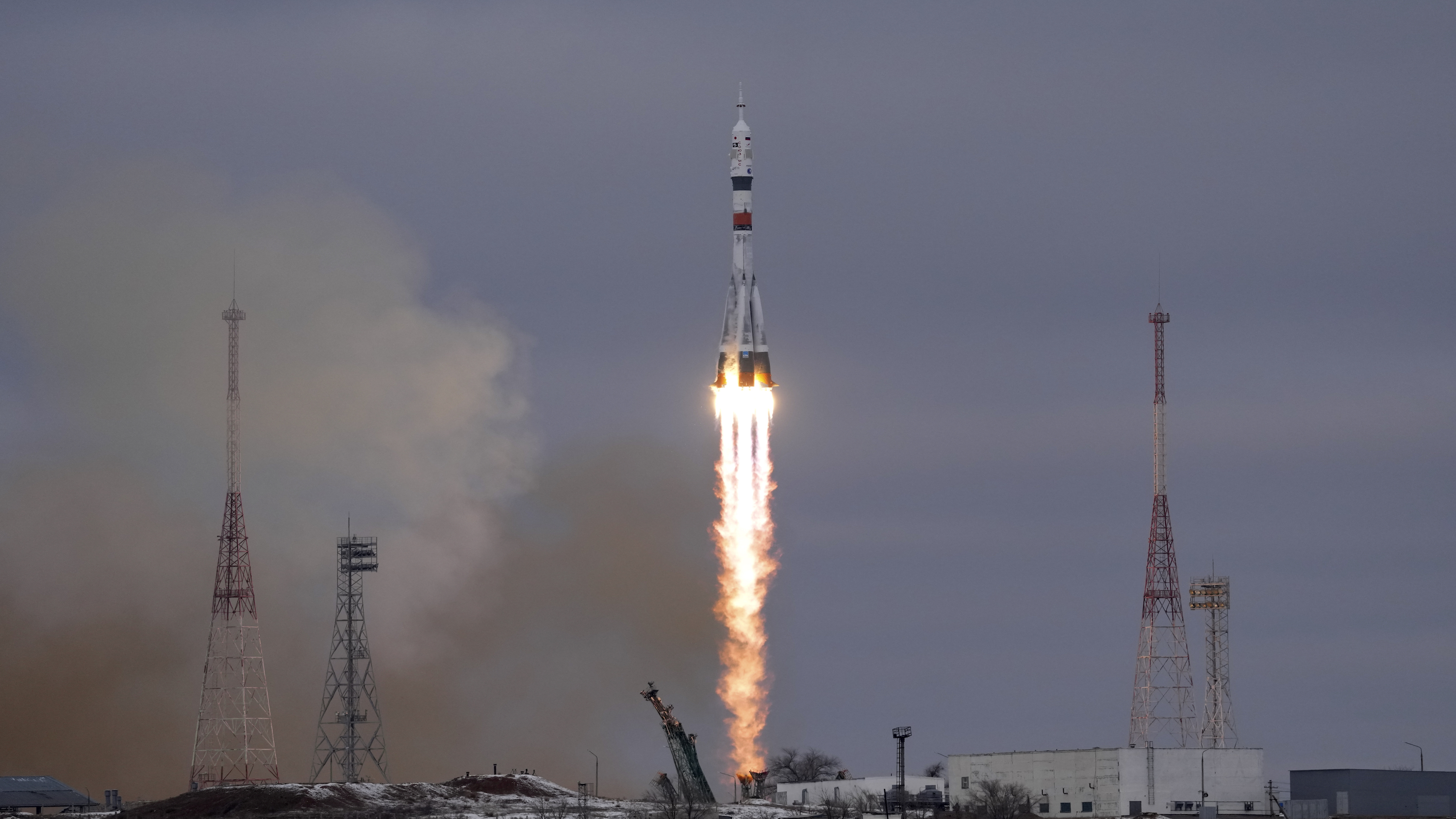UK satellite company will use SpaceX rockets after Russian ban
SpaceX and OneWeb are competitors in the satellite broadband market

Get the world’s most fascinating discoveries delivered straight to your inbox.
You are now subscribed
Your newsletter sign-up was successful
Want to add more newsletters?

Delivered Daily
Daily Newsletter
Sign up for the latest discoveries, groundbreaking research and fascinating breakthroughs that impact you and the wider world direct to your inbox.

Once a week
Life's Little Mysteries
Feed your curiosity with an exclusive mystery every week, solved with science and delivered direct to your inbox before it's seen anywhere else.

Once a week
How It Works
Sign up to our free science & technology newsletter for your weekly fix of fascinating articles, quick quizzes, amazing images, and more

Delivered daily
Space.com Newsletter
Breaking space news, the latest updates on rocket launches, skywatching events and more!

Once a month
Watch This Space
Sign up to our monthly entertainment newsletter to keep up with all our coverage of the latest sci-fi and space movies, tv shows, games and books.

Once a week
Night Sky This Week
Discover this week's must-see night sky events, moon phases, and stunning astrophotos. Sign up for our skywatching newsletter and explore the universe with us!
Join the club
Get full access to premium articles, exclusive features and a growing list of member rewards.
OneWeb, a satellite company partly controlled by the U.K. government, has announced a new partnership with SpaceX after being banned from using Russian rockets following Russia's invasion of Ukraine.
Under the new deal, SpaceX will launch an unspecified number of OneWeb satellites later this year, adding to its growing constellation of 428 of the planned total of 648 low-Earth orbit satellites. OneWeb's program, similar to SpaceX's Starlink initiative, aims to create a mega-constellation of thousands of satellites to provide broadband internet coverage to customers around the world.
OneWeb had to abandon its previous launch plan to send a batch of 36 satellites to space aboard a Russian Soyuz rocket, after an ultimatum made by Dmitry Rogozin, the director of the Russian Space agency Roscosmos. Rogozin demanded that for the launch to take place, the British government should completely divest its $500 million stake from OneWeb and the company should provide a guarantee that its satellites would not be used for military purposes. OneWeb and the U.K. refused to accept the demands and suspended all further satellite launches from the Roscosmos launch site at the Baikonur Cosmodrome in Kazakhstan.
Related: Here's every spaceship that's ever carried an astronaut into orbit
"We thank SpaceX for their support, which reflects our shared vision for the boundless potential of space," OneWeb's chief executive, Neil Masterson said in a statement. "With these launch plans in place, we're on track to finish building out our full fleet of satellites and deliver robust, fast, secure connectivity around the globe."
The U.K. government took a 20% stake in OneWeb in July 2020, investing to save the company from bankruptcy after it failed to secure private funding. The purchase made the British state a major shareholder alongside OneWeb's majority shareholder, the Indian telecommunications company Bharti Global, which owns a 40% controlling share.
The U.K.'s ostensible reason for investing in the company was to replace the European Union's Galileo Navigation system, which the country lost access to after Brexit. The British government said it was going to use the OneWeb satellites to build an alternative to Galileo, but this plan was later described as "nonsensical" by experts, who said that the satellites made by OneWeb are totally different from those made for navigation systems.
Get the world’s most fascinating discoveries delivered straight to your inbox.
"We've bought the wrong satellites," Bleddyn Bowen, a space policy expert at the University of Leicester, told the Guardian after the purchase.
The details of the new deal between both companies have been kept confidential, but SpaceX quotes its price to send a Falcon 9 rocket into space at $67 million, a figure which the Elon Musk company says increased in March from the earlier rate of $62 million "to account for excessive levels of inflation."
OneWeb and SpaceX are competitors in the satellite broadband market, as SpaceX has sent 1,200 out of a planned 42,000 Starlink satellites into orbit. The companies say their megaconstellations will provide internet access to underserved regions of the world, but astronomers have warned that the bright trails the satellites leave in the sky could pose a significant risk to future astronomical research, Live Science previously reported.
Rozogin replied to OneWeb's announcement on Twitter on Tuesday (March 22) with an image of a snake swallowing a rat along with the caption "Bon appetit," a possible allusion to OneWeb's reliance on the rockets of a competitor.
Originally published on Live Science.

Ben Turner is a U.K. based writer and editor at Live Science. He covers physics and astronomy, tech and climate change. He graduated from University College London with a degree in particle physics before training as a journalist. When he's not writing, Ben enjoys reading literature, playing the guitar and embarrassing himself with chess.
 Live Science Plus
Live Science Plus










